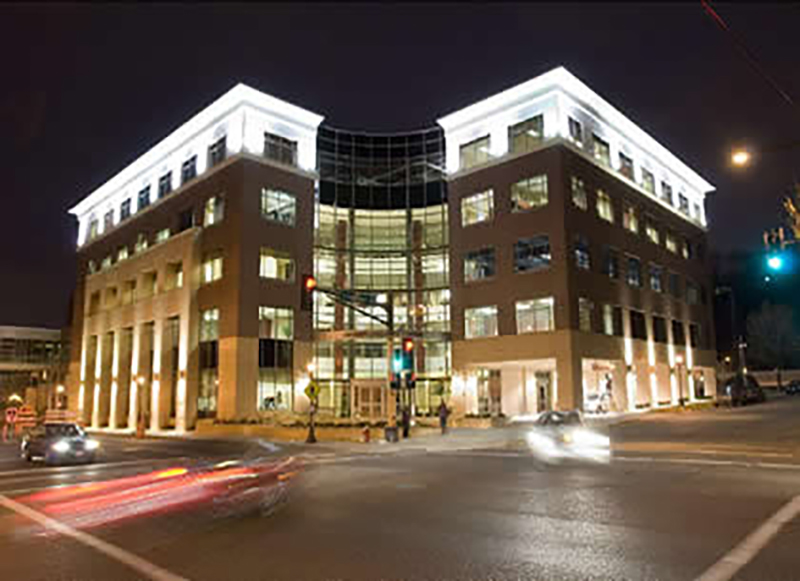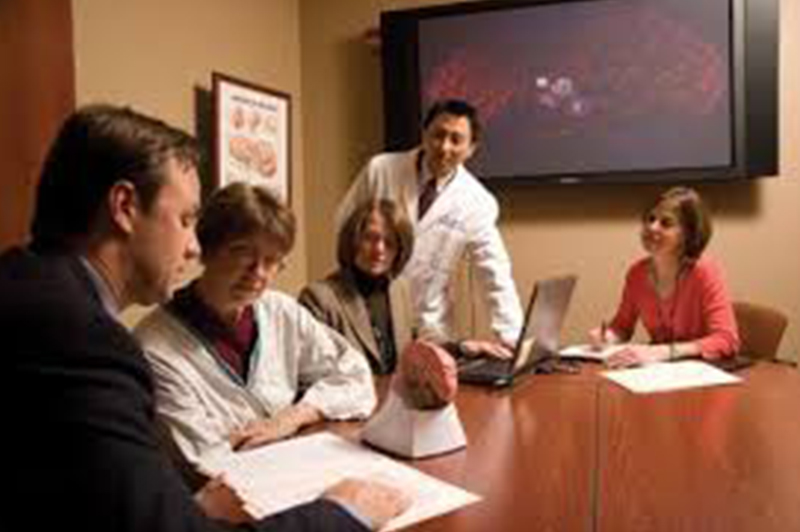Neuropsychology Residency

Site Description
Minnesota Epilepsy Group (MEG) is a tertiary care epilepsy center that provides evaluation and treatment for children and adults with seizure disorders from the Twin Cities metro area, out-state Minnesota, and surrounding states. The center operates as a private practice made up of 10 epileptologists (4 pediatric, 6 adult), and has a longstanding reputation of providing excellent comprehensive epilepsy care, over the course of its 23 year history. The physicians care for patients in the outpatient clinic, and they manage the pediatric and adult 10-bed inpatient epilepsy units at Children’s Hospital, United Hospital and Abbott Northwestern Hospital.
Within MEG, the Psychology Department is comprised of 4 clinical neuropsychologists (2 pediatric, 2 adult), 1 pediatric psychologist, 2 part-time clinical psychologists, 4 psychometrists, and 2 social workers. The clinicians in this department work closely with MEG’s physician partners and staff to provide psychology and neuropsychology services for the center’s epilepsy patients, in the outpatient clinic and on the inpatient units. In addition, these clinicians see patients referred from a variety of outside providers, including neurosurgeons, general neurologists, pediatricians, physical medicine and rehabilitation physicians, sports medicine physicians, geriatric specialists, and primary care physicians. Some of the providers also maintain a relatively small subset of forensic referrals.
Neuropsychology Residency Program Goals/Overview
The postdoctoral residency in neuropsychology at MEG is designed to educate and train individuals to meet the competencies necessary for the specialized practice of clinical neuropsychology, specifically preparing residents in a manner that will ensure that they will be eligible for ABPP/ABCN board certification. Over the course of the 2-year program, residents will attain a level of professional independence that will allow them to be competitive for early-career level neuropsychology positions, particularly in settings that involve direct collaboration with physicians and medical staff.
There are two tracks for this program, the Pediatric Neuropsychology Track and the Adult Neuropsychology Track. Each track will have one open position every other year, starting with a Pediatric Track position in 2014. The residency is designed to be primarily pediatric or adult, with opportunity for secondary elective training in the alternate track, as desired by the resident.
For both tracks, the resident’s clinical time will be split almost evenly between the outpatient clinic and the inpatient neuroscience/epilepsy unit. The resident’s weekly hours will be divided roughly into 80% clinical services, 10% research, and 10% educational activities.
The primary clinical population served is epilepsy patients. Secondary clinical populations for the Pediatric Track include concussion, brain tumor, arachnoid cyst, non-epileptic events, ADHD, and learning disability. Secondary clinical populations for the Adult Track include concussion, brain tumor, and dementia.
Supervision
In total, the resident will participate in approximately 5 hours per week of supervisory and/or didactic experiences/meetings. The resident will receive at least 1 hour of individual supervision per case (2.5 hours per week). This includes direct face-to-face case discussion, as well as the neuropsychologist’s review and revision of the report generated by the resident. For the Pediatric Track, clinical and research activities will be supervised primarily by Elizabeth Adams, PhD, ABPP and Ann Hempel, PhD, ABPP. For the Adult Track, clinical and research activities will be supervised by Robert Doss, PsyD, ABPP and Gail Risse, PhD. Also, the resident will have direct interaction with the epileptologists/physician partners of MEG, which will allow opportunity for teaching/training experiences. In addition to individual supervision, the resident will receive at least 1 hour of group supervision per week, in the form of a case conference, designed to prepare the resident for the Fact Finding portion of the ABPP/ABCN oral examination. The resident will participate in 1-2 hours of didactics per week, in the form of Tuesday noon lectures and journal club meetings. The resident will lead at least 1 didactics session and at least 2 journal club meetings per semester.
Training Cohort
Minnesota Epilepsy Group is a neuropsychology practicum training site for the Doctoral Program in Clinical Science and Psychopathology Research program at the University of Minnesota. In a given year, there will be 1-2 neuropsychology practicum students participating in didactics, journal club, and/or case conference meetings along with the resident. In addition, the training cohort will include trainees outside of neuropsychology including at least one pediatric psychology resident and, some years, one neurologist completing a post-doctoral fellowship in epilepsy. There is an adult neuropsychology resident starting in July 2013, and a pediatric psychology resident starting in September 2013. There will also be opportunity, as is relevant for the trainees, to participate in didactics with local training programs as desired such as Children’s Hospital and Gillette Children’s Specialty Healthcare Neuropsychology Program.
Applicants Must Meet the Following Criteria
- PhD or PsyD from an APA or CPA-accredited graduate school.
- Completion of APA or CPA-accredited internship program preferred but not required.
- Completion including final defense of dissertation.
- Doctoral education in clinical neuropsychology
- Clinical training in neuropsychology
Resident’s Weekly Hours Overview
- 80% clinical/10% research/10% education (supervision, didactics, journal club, case conference)
- Tuesday 1 hour surgery conference
- Tuesday 1 hour didactic session/journal club
- Friday 1 hour fact finding practice/case conference
- Individual supervision 1 hour per case – days will vary
Inpatient Coverage
The resident will see approximately 1-2 inpatients per week. This number will vary depending on the unit census and therefore the outpatient schedule will include some built-in flexibility to allow the resident to see inpatients without increasing the total clinical hours per week.
Expectations in Addition to Clinical Work
1st Year:
- Accrue hours for licensure
- Submit research abstract for American Epilepsy Society conference June
2nd Year:
- Take the EPPP licensing exam before January of 2nd year
- Obtain state licensure by the middle of the 2nd year
- Submit research abstract for AES, or paper for publication in a journal
Specific Training Activities Available, in Addition to Typical Clinical Neuropsych Evaluations
- Wada Test (intracarotid sodium amobarbital test)
- Cortical stimulation mapping for language
- Magnetoencephalography/Magnetic Source Imaging
- Functional Magnetic Resonance Imaging (fMRI)
Direct Patient Care
The resident will only be allowed opportunity to provide direct patient care, at varying levels (e.g., testing, interviewing, feedback) when he/she has demonstrated the set of skills that are considered required for competency at each level. Until the resident is ready to provide direct patient care, he/she will observe (e.g., psychometrists testing and neuropsychologists conducting interviews and feedback sessions). As the resident becomes ready to move toward more independence in these areas, he/she will be offered the opportunity to perform these various clinical duties under direct supervision with the neuropsychologist who will be present in the room. Then, when these skills are mastered, the resident will be allowed to provide direct patient care with only indirect supervision.

The resident will receive direct/experiential clinical training in upholding ethical standards in the practice of clinical neuropsychology, and in maintaining awareness and making appropriate adjustments for cultural and individual differences and diversity. In addition, the resident will participate in several didactics sessions dedicated to discussions of ethics and cultural diversity. Because MEG is located in a relatively ethnically/culturally homogeneous region of the country, opportunities for direct clinical interaction with individuals of diverse racial and ethnic backgrounds are unfortunately not as amply available as in other geographic regions. To account for this, several didactics sessions will be dedicated to discussion of diversity. Also, the resident will have opportunities to conduct testing and interviews/feedbacks with the assistance of an interpreter.
Report Writing
After the resident has demonstrated mastery of test administration and scoring, and after he/she has had opportunity to observe several interviews and feedback sessions with the supervising neuropsychologist, he/she will be expected to begin writing reports. Initially, the resident will be encouraged to review several patient charts prior to working with each neuropsychologists, to become familiar with the neuropsychologist’s report writing style, test battery, note-taking procedures, etc. Then, with as much guidance as is necessary at the outset, the resident will begin preparing reports for patients for whom they performed testing and/or interview and feedback. The supervising neuropsychologist will provide written and verbal feedback to the resident on each report. Within the first quarter, it is expected that the resident will become independent in each of these areas, so that he/she will be conducting the evaluations from start to finish, including preparation of a written report, with supervision from the neuropsychologist. It is expected that reports will be turned in to the supervising neuropsychologist within approximately 1 week after the evaluation. Of course, as the clinical schedule waxes and wanes, this expectation is very flexible.

Evaluations
The resident will have, at minimum, one formal evaluation per quarter. Using standard written evaluation forms, the supervising neuropsychologists will rate the resident, and the resident will rate the neuropsychologists as well as the training program overall. The resident will be given a copy of each evaluation. If it is determined that the resident is not performing at an appropriate level of competence given their stage in the training program, the supervising neuropsychologists will develop and implement a plan to help the resident remediate the specific areas of relative weakness.
Program and Institutional Grievance Procedures
The resident is encouraged to discuss concerns or conflicts directly with the supervising neuropsychologist. If that option is not available, not appropriate, or not comfortable for the resident, he/she is encourage to bring the concern to the attention of the psychology department manager, Gail Risse, PhD. If the resident needs to discuss the matter with an individual outside of the psychology department, in confidence, he/she may approach the director of human resources, Diana Kroska. Ms. Kroska will work together with the resident and, if necessary, with the executive director of MEG, Sheryl Andersen, to find resolution for the issue.
Benefits
Residents earn a competitive salary and receive full benefits. Time off for attendance at the annual conference of the American Epilepsy Society (AES) is provided in addition. When the resident is first author on a poster presentation or symposium at AES, his/her travel expenses will be covered by MEG.
Application Procedures
Please send a letter of intent, curriculum vitae, graduate school transcript, one sample report, and three letters of recommendation to:
Elizabeth Adams, PhD, ABPP
Minnesota Epilepsy Group
2720 Fairview Avenue North.
Suite 100
Roseville, MN 55113
Minnesota Epilepsy Group Postdoctoral Residency in Neuropsychology will participate in the Association of Postdoctoral Programs in Clinical Neuropsychology (APPCN) Match and will adhere to all pertinent rules and procedures as outlined by APPCN, referenced on the website www.appcn.org.
